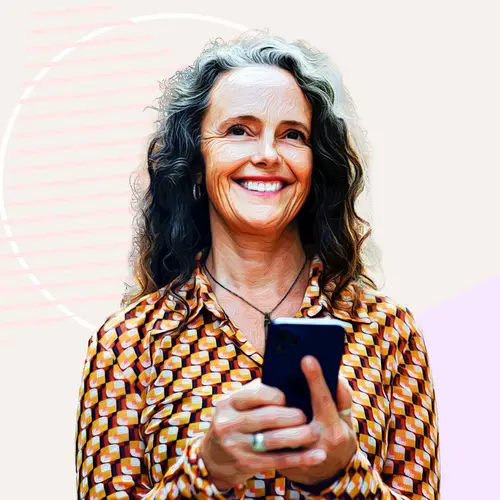When picturing health, your mind may go directly to the physical. However, emotions also play a strong role in well-being. Studies have shown a connection between regulated mental health and the body's physical health. A more holistic health approach will consider the state of both your mind and body, often referred to as the mind-body connection.
What Is Emotional Health?
Emotional health is one aspect of mental health. It is your ability to cope with both positive and negative emotions, which includes your awareness of them. Emotionally healthy people have good coping mechanisms for negative emotions, and they also know when to reach out to a professional for help.
Emotional wellness is tied to physical health. People who experience great amounts of stress and negative emotions will sometimes develop other health problems. These problems are not caused directly by the negative feelings, but by behaviors that negative emotions can influence due to a lack of emotional regulation. For example, some people enjoy smoking cigarettes or drinking alcohol as a way to relieve stress. However, those habits put you at a greater risk for cancer, heart disease, and other illnesses.
Keep in mind that a person can experience mental illness or bad days, and still have good emotional wellness. Mental illnesses often have deeper causes like a chemical imbalance or trauma. Emotional health has more to do with emotional regulation, awareness, and coping skills, and these strategies can be used by people with or without a mental illness.
How to Know if You're Struggling With Emotional Health
Some warning signs of emotional health in need of care include:
- Isolating yourself from friends, family, or coworkers
- Lower energy than usual
- Sleeping too much or too little
- Eating too much or too little
- Increased use of substances
- Racing thoughts
- Lower performance at work
- More interpersonal conflicts than usual
- Feelings of irritability, guilt, hopelessness, or worthlessness
- Neglecting hygiene and personal care
How to Work On Your Emotional Health
There are many ways to maintain or even improve your emotional health which include:
Living a balanced lifestyle. Try to have a good balance between work and your personal life, activity and resting, and moderation in all things.
Stay connected. Community is important. Plan regular shared time with friends and family members. Virtual connections are good, but seeing someone in person once in a while is helpful too.
Meditate. Meditation helps you to notice your thoughts and emotions, which is key to emotional wellness.
Watch how you talk about yourself. Negative self-talk can become a self-fulfilling prophecy, or just put you in a negative mindset. Work on creating a positive image of yourself with your words. Your thoughts may soon follow.
Set goals and celebrate your achievements. Give yourself something to strive for, and celebrate your accomplishments to build self-esteem and positive feelings about yourself.
Use substances in moderation. Sometimes drinking too much alcohol is a way to numb difficult emotions. Notice when you are using substances more than usual, and think about whether there’s an emotional cause for this.
Learn strategies for resilience. This is your ability to react to difficult emotions and stressful situations. Many of the same things that help you with emotional health can also improve your resilience.
Get enough sleep. Studies show that a lack of sleep lessens your ability to sense the emotions of others and your ability to process emotions in general.
Exercise. Staying physically active for at least 30 minutes a day can help to improve your overall emotional health. The exercise doesn't need to be overly tough or intense. Just going for a walk or dancing around your house can help.
Find meaning in your life. Some people have jobs that give them a feeling of purpose, but that's not the only way to find meaning in your life. Something as simple as caring for a pet or volunteering for a cause that you're passionate about can also give you that feeling.
Know when to reach out for help. You don't have to handle negative emotions on your own. Knowing when to reach out to a mental health professional for help with difficult emotions is a useful skill to have. You should also reach out to one if you have tried to improve your emotional health, but still aren't feeling your best.

